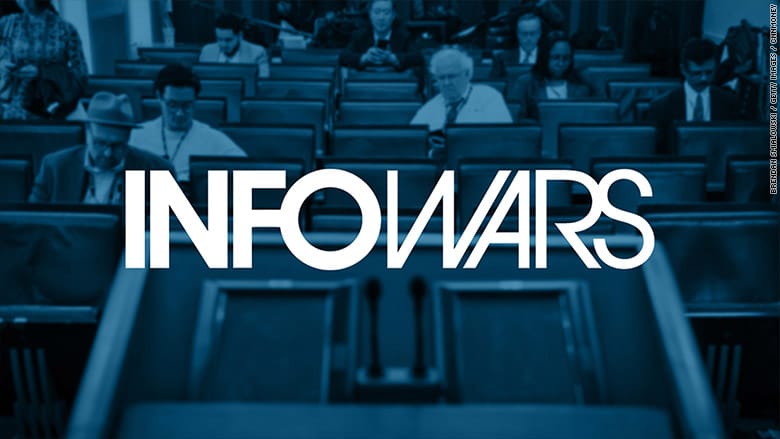The proposed acquisition of Infowars by satirical news outlet The Onion has been blocked by a Texas bankruptcy court, a development that has brought renewed attention to both the legal complexities of corporate restructuring and the ongoing debate surrounding media ownership and content control. Judge Christopher Lopez, overseeing the bankruptcy proceedings of Free Speech Systems, the parent company of Infowars, issued the ruling, citing the fundamental mismatch between the two entities as a primary concern.
Infowars, founded by Alex Jones, has been a highly controversial media platform, known for broadcasting conspiracy theories and misinformation. It has faced multiple lawsuits, including defamation cases related to the Sandy Hook Elementary School shooting. The platform declared bankruptcy as a strategy in response to these financial pressures, and the proposed sale to The Onion was seen by some as a novel way to address the platform’s liabilities while simultaneously offering a sardonic commentary on the current media landscape.
The Onion, on the other hand, is a well-established satirical news publication known for its fabricated stories, often mocking current events, political figures, and societal norms. Its brand is built on humor and ironic commentary, and the prospect of it acquiring Infowars was met with a mix of amusement and bewilderment. It raised several legal questions around the nature of media ownership, the responsibilities of owners, and the potential impact on the platforms’ existing content.
The court’s decision rests primarily on the concept of “appropriateness,” a term that, in the context of bankruptcy proceedings, refers to the suitability of a buyer given the specific circumstances of the bankrupt entity. In this case, the court argued that The Onion’s brand identity is fundamentally incompatible with the operational needs and liabilities of Infowars. Bankruptcy courts often prioritize the reorganization and continuity of the bankrupt entity, favouring buyers who can maintain its operations, generate revenue, and thereby satisfy the claims of creditors.
Judge Lopez’s ruling highlighted the court’s concern that The Onion’s intention to satirize or dismantle Infowars could potentially jeopardize the platform’s remaining value as a business. Further, the court has stressed the need for a serious investor, someone who intends to run the platform, even if in an altered state, rather than someone who intends to shut it down or rebrand it as satire.
This decision underscores the complexities of the US bankruptcy system when it intersects with the media industry. The bankruptcy process is not a straightforward liquidation; instead, it aims for the most beneficial outcome for the various stakeholders, including creditors, employees, and potentially the public. The court’s skepticism towards The Onion’s acquisition is a testament to its focus on economic viability and fiduciary duty.
The acquisition proposal also raised questions about the legal standing of satire in the contemporary media ecosystem. There are very few instances of satiric publications purchasing news publications that have been deemed as “real news” by some people. This move could have possibly created a new precedent that could potentially make it easier for satiric websites to take over other publications in the future. The court’s decision, however, has effectively postponed this discussion.
The future of Infowars is now in flux again, as the platform must continue to navigate the complex landscape of bankruptcy proceedings while facing ongoing litigation. The legal challenges facing Infowars are not merely financial, but also involve First Amendment issues, defamation allegations, and questions surrounding the responsibility of media outlets in reporting and disseminating information.
The rejected sale also prompts a re-evaluation of the current state of the media landscape, which is increasingly marked by blurred lines between fact and fiction, satire and seriousness. The increasing presence of satire and comedic news outlets often makes it hard for the average person to differentiate between what is a legitimate news outlet and what isn’t. The attempt by The Onion to acquire Infowars is evidence of the growing trend of media outlets engaging in inter-media dialogue and blurring the lines between traditional and non-traditional media.
The impact of the court’s decision extends beyond the immediate fate of Infowars and serves as a reminder that media ownership is not solely a matter of financial transaction. There are also moral and ethical considerations that come into play, and they may be assessed in different ways based on the political or social climate. The ruling also brings in the debate surrounding the nature of bankruptcy, and how it is often used as a way for organizations to escape their liabilities.
Looking ahead, it is expected that the court will solicit new offers for the purchase of Infowars, seeking a buyer who has the capacity to maintain the operations of the platform and generate revenue while addressing the financial obligations of Free Speech Systems. It is likely that any potential sale will be subject to significant scrutiny, given the controversial history of Infowars. It may also potentially require a buyer with expertise in media management as well as experience with libel and defamation laws, considering the ongoing lawsuits.
The case of Infowars and its bankruptcy proceeding is also a lesson in the limits and possibilities of the legal system when it comes to media companies. Bankruptcy court is not a means to escape from responsibilities; it is more of a method of addressing debts. The judge presiding over the case must also adhere to strict legal guidelines and try to get the most value for the debtors.
The rejection of the Onion’s bid has also generated discussion amongst media law experts and legal scholars, many of whom are divided on whether the judge made the correct decision. Some agree that letting a satirical website purchase a “news” website is a bad idea that will lead to increased confusion between fake and real news. Other experts suggest that the judge is overstepping, since he is essentially making a decision based on the judge’s own personal opinion, not on the facts of the matter.
The court’s decision is not likely to be the end of the matter, and it is highly likely that the case will be appealed by The Onion’s legal team. It will be an interesting case to follow as it will provide more clarification on how bankruptcy laws intersect with media law. The case has also revealed an underlying tension in the media sphere, where new forms of satirical and ironic media are pushing the boundaries of what constitutes ‘news’ in the traditional sense. It also serves as a warning for those who are unaware of the risks posed by fake or misinformation news, and it suggests that there are multiple ways that the courts or government can control such information.
The bankruptcy case highlights a growing challenge for media platforms: the increasing polarization of audiences, which makes it difficult for news outlets to maintain financial viability while also upholding ethical standards. This case has presented several complex legal and ethical questions, and it will likely have implications on the way media platforms will be handled in the future, especially during times of bankruptcy. It also opens a conversation about free speech and whether or not all information, no matter how false or damaging, is protected by the First Amendment.
As the legal process continues, both Infowars and The Onion will face uncertain futures. The ruling by the bankruptcy court has halted what would have been an unprecedented media merger, and the impact of the decision will be felt across the media landscape. The question of who will eventually acquire Infowars, and what that acquisition will mean for the future of the platform, remain open. The entire case has attracted international attention, and media outlets from around the world have covered the story, given the implications for media and free speech. The next few months are likely to be filled with legal challenges and court proceedings as Infowars navigates its bankruptcy.
The long term effects of this decision could have a wider reaching impact on not only the media sector but the legal sector as well. This case has served as a case study of what can happen when a company attempts to use bankruptcy laws to escape the responsibilities associated with libel or defamation cases. The court has shown that they are unwilling to allow bankruptcy law to be used in such a way, and this will serve as precedent for other similar cases. The long-term impact of this case will be closely watched by media, legal and business professionals.



